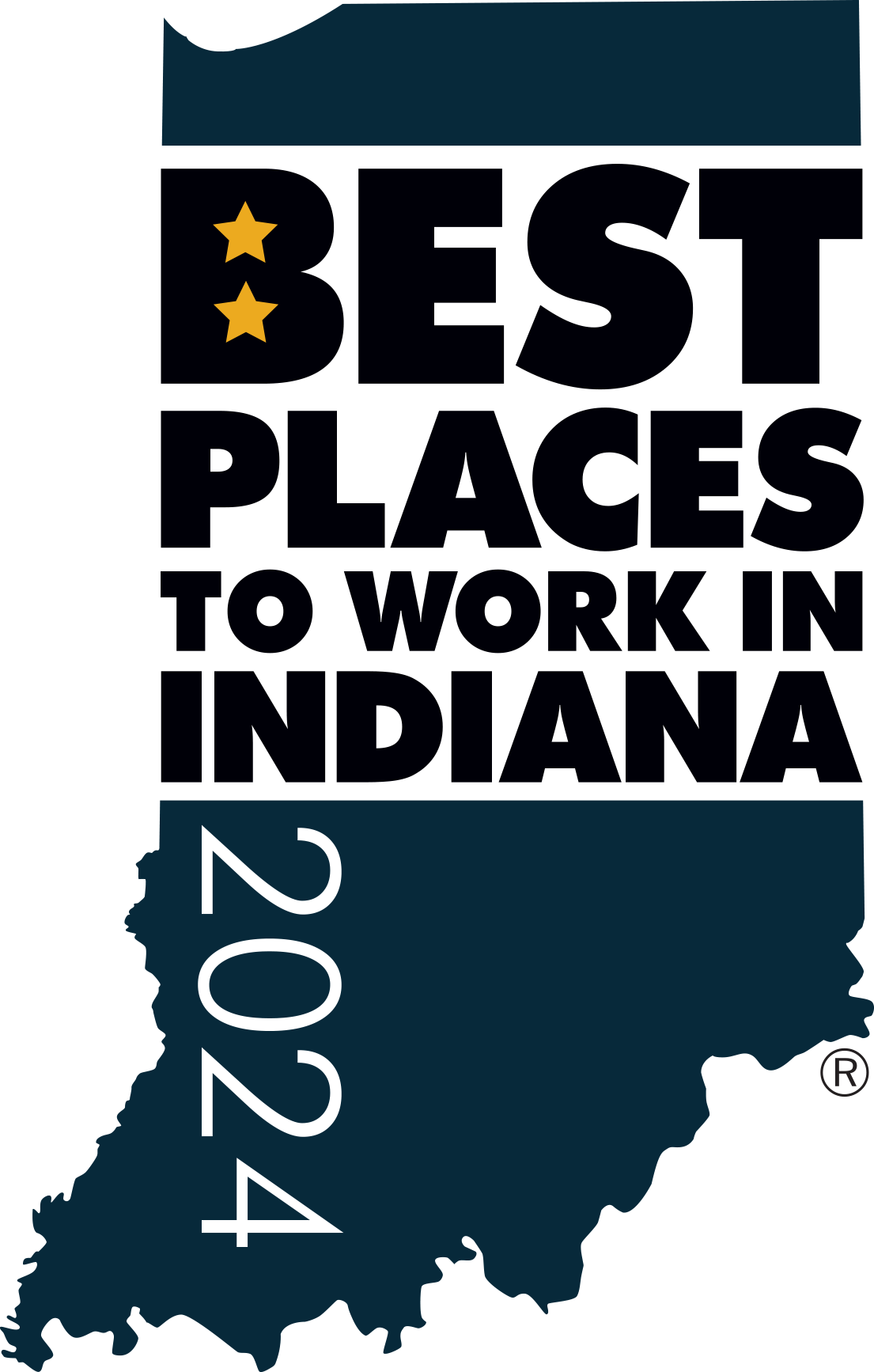Indy CFO Spotlight-Stephanie Peavler
Stephanie Peavler is engaging, energetic and fearless. She’s two months in as the new CFO of BSA
LifeStructures, although she’s no stranger to the company. We’re at Scotty’s Brewhouse on a Thursday
afternoon and it’s absolutely pouring outside.
KB: Stephanie it’s great to see you.
SP: Glad to be here.
KB: Tell me a little bit of your story:
SP: I grew up in Richmond, Indiana and went to the University of Indianapolis. I was very busy in college –
I was a high jumper on the track team, studied accounting, worked about 30 hours a week and got my 150
hours in four years.
KB: That’s pretty darn impressive.
SP: [Laughs] I’m a very driven and determined person.
KB: Where did you work?
SP: I worked retail, then three years at The Omni Hotel…I figured out I could work longer hours and make
more money – front desk, concierge and then the accounting department.
KB: What did that experience teach you?
SP: It taught me to hold my tongue. The front desk was an invaluable experience in learning how to treat
people.
KB: How’d you pick accounting and where did it take you?
SP: I picked accounting because of the career prospects. To me, public accounting was just the path…it
wasn’t even a question in my mind. I joined Somerset and was there three years. Kerry Dunn also worked
at Somerset. I started out in entrepreneurial services, then moved to construction and real estate. After
Somerset, I landed a job at Celadon as Assistant Controller. Eventually, some things in my personal life
changed, so I called Kerry Dunn, who had moved to BSA. They didn’t have anything at the time, but three
months later he called me with an opportunity. That was eleven years ago.
KB: All the CFO’s I’ve featured in the past year are seasoned in their role. It’s great to be able to feature
someone who’s just stepping into it.
SP: We have a small finance team at BSA, and we’ve all been there a long time. The joke is that we’re all
going to die there. I knew I wasn’t going anywhere and Kerry (Dunn) wasn’t going anywhere, and I was fine
with that.
KB: But then Kerry moved out of the CFO spot, creating the opportunity for you to step in?
SP: Yes. Kerry said, “I think you’re ready.” The Board agreed.
KB: That’s fantastic. When you joined BSA, what level did you start at, and what was your path?
SP: I joined as a Project Accountant, then moved to Assistant Director of Finance and then to Director of
Finance.
KB: What has driven your success there?
SP: It’s had a lot to do with just speaking up. Early on, I started to get really involved with the operational
stuff. For example, the Firm started a Project Management Initiative…managing people and hours. So, I
asked myself, “How can I help them?”
KB: And what did you decide to do?
SP: I inserted myself. I didn’t take no for an answer. I ran reports and then explained what I saw in the
meetings. Soon after I started doing that, they began to see the value in managing projects from a
manpower perspective.
KB: Did you get any pushback?
SP: People had challenges with planning and administrative stuff. If someone hadn’t planned their project
(or planned it enough), I’d sit down and plan it with them. They struggled with our software. I said, “Don’t
worry about the software…I’ll put the information in.” I just did it. No one is going to stop you from doing
something they don’t want to do, especially if it’s a necessity. I saw something that needed to be done so
I just did it.
KB: Did it work?
SP: It caught on and we began to really teach them business. At BSA, accounting is a service to the
architects and engineers. We had to build trust with them. Everything was fine until 2008; then we were
forced to look at things differently. At the same time, we had to be respectful that these individuals are
brilliant at what they do. They’re artists; you have to position things in a way that resonates with them.
Accounting is pretty dry, but how we integrate ourselves with the engineers and architects to help them
manage their projects from a financial perspective is interesting. What took a while is this…early on, we
would meet with the people running the jobs and they wouldn’t understand what we [finance] were talking
about – the terms we were using and how we used them. That made us ask ourselves, “How can we better
communicate with them on the financial impact on their projects?”
Now, I do a video every month in which I go over the financials, breaking things down into understandable
terms and concepts. It’s a strength that I bring to the position. I’m so ingrained in the operations that I know
the people and their concerns. That allows me to communicate in a way that reaches everybody.
KB: How do you communicate?
SP: I am very direct, but I try to keep things light. I try to talk to people as people. If it’s bad, I’ll tell you it’s
bad; if it’s good I’ll tell you it’s good…and I’ll do both with a smile on my face.
KB: What’s been the result of all this?
SP: People say things like, “I’ve never worked with an accounting department like this….so helpful, so
integrated into the business.” We get treated like we are part of the team. People are at my desk all day
long. People know that if they have a question, I will have an answer, or I can get them an answer. I enjoy
the relationship side of the job.
KB: What do people want from a CFO?
SP: Some people have the perception that the CFO can just make money appear. I think that what that
really means is that people want to be led in a way that results in financial success. When they’re not,
they’re owed an explanation as to why we’re not successful. A CFO should lead so that things are
explained, and people understand how their actions can benefit the company. There’s a lot of behind the
scenes stuff, of course, but appropriate explanations are important.
KB: Because of your experience at BSA and your close working relationship with Kerry Dunn, were there
any surprises when you stepped into the role?
SP: No surprises really. There were some things I didn’t anticipate. Like my calendar filling up on Day 1.
KB: Ok, now for some fun stuff. What’s your favorite movie?
SP: Bridesmaids
KB: How do you define excellence?
SP: Contributing to the overall cause. Not just going through the motions of doing the job.
KB: What advice would you give your younger self?
SP: Be patient. Not everything has to happen immediately.
KB: I get the sense that you’re not scared of anything.
SP: I don’t shy away from much. I tried water skiing this weekend.
KB: How’d you do?
SP: Five seconds.
KB: That’s awesome.
SP: Thanks.

